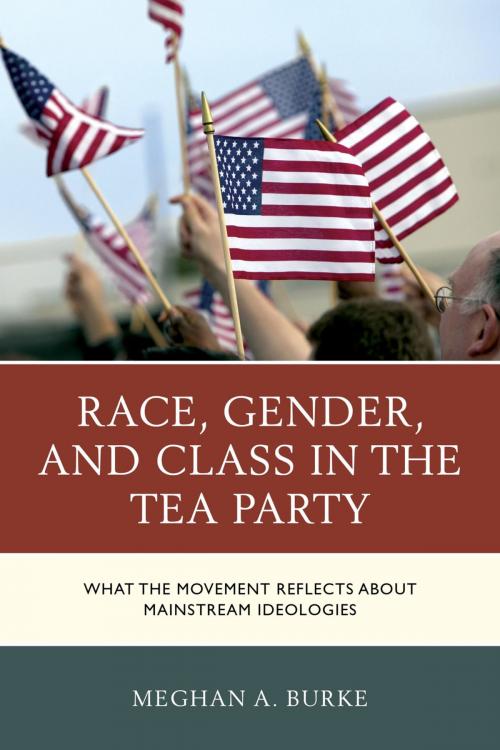Race, Gender, and Class in the Tea Party
What the Movement Reflects about Mainstream Ideologies
Nonfiction, Social & Cultural Studies, Social Science, Cultural Studies, Popular Culture, Political Science| Author: | Meghan A. Burke | ISBN: | 9780739185544 |
| Publisher: | Lexington Books | Publication: | January 27, 2015 |
| Imprint: | Lexington Books | Language: | English |
| Author: | Meghan A. Burke |
| ISBN: | 9780739185544 |
| Publisher: | Lexington Books |
| Publication: | January 27, 2015 |
| Imprint: | Lexington Books |
| Language: | English |
It has been all too tempting to characterize the Tea Party as an irrational, racist, astro-turf movement composed of members who are working to subvert their own economic interests. Race, Gender, and Class in the Tea Party reveals a much messier and much more fascinating analysis of this movement. Drawing upon in-depth interviews with organizers and fieldwork at conservative campaign trainings and conventions, its rich ethnographic data explores how the active folks in this movement, specifically organizers in one Midwestern state, understand their world, and how they act on that basis to change it. As this book will reveal, most Tea Party organizers do depend on deeply flawed understandings of race and class—either believing wholeheartedly in myths, or confining their analyses to the narrow limits of the conservative media system. Yet, Tea Party racism is simply American racism.
Race, Gender, and Class in the Tea Party reveals the complexities and contradictions inherent in this movement, where organizers attempt to reconcile their personal experiences with their conservative politics. In the end, these dynamics reveal as much about us as it does about the Tea Party. It is certain to challenge all of our politics, and especially our scholarly thinking, about the movement, and offers a path toward real conversations about our collective future in the United States.
It has been all too tempting to characterize the Tea Party as an irrational, racist, astro-turf movement composed of members who are working to subvert their own economic interests. Race, Gender, and Class in the Tea Party reveals a much messier and much more fascinating analysis of this movement. Drawing upon in-depth interviews with organizers and fieldwork at conservative campaign trainings and conventions, its rich ethnographic data explores how the active folks in this movement, specifically organizers in one Midwestern state, understand their world, and how they act on that basis to change it. As this book will reveal, most Tea Party organizers do depend on deeply flawed understandings of race and class—either believing wholeheartedly in myths, or confining their analyses to the narrow limits of the conservative media system. Yet, Tea Party racism is simply American racism.
Race, Gender, and Class in the Tea Party reveals the complexities and contradictions inherent in this movement, where organizers attempt to reconcile their personal experiences with their conservative politics. In the end, these dynamics reveal as much about us as it does about the Tea Party. It is certain to challenge all of our politics, and especially our scholarly thinking, about the movement, and offers a path toward real conversations about our collective future in the United States.















